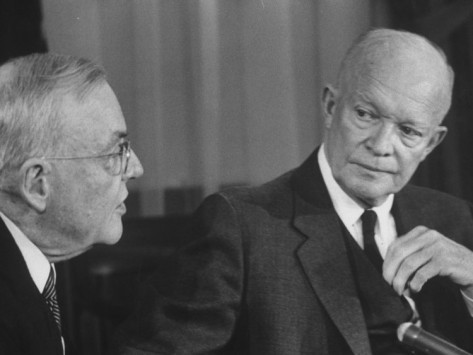
On This Day, January 15, 1953 – Testifying before the Senate Foreign Relations Committee prior to taking office as the new secretary of state, John Foster Dulles argues that U.S. foreign policy must strive for the “liberation of captive peoples” living under communist rule.
Though Dulles called for a more vigorous anticommunist policy, he remained vague about exactly how the “liberation” would take place. When asked during the hearing whether he supported the policy of containment, which sought to restrain the further expansion of communist power, Dulles responded by declaring, “We shall never have a secure peace or a happy world so long as Soviet communism dominates one-third of all of the peoples.”
Despite the vague specifics of the original declaration, Dulles’s call for action was soon put into practice. The Eisenhower administration conceived a wide-ranging program of political and psychological warfare, and overseas propaganda—produced and disseminated by the new United States Information Agency—became an important Cold War weapon. In Iran, Guatemala, and later, Cuba, the United States resorted to covert operations directed by the Central Intelligence Agency to destabilize foreign governments perceived to be a communist threat.
In 1956, however, Dulles’s oft-repeated calls for the liberation of captive peoples backfired badly when Hungarian citizens rose up in revolt against the Soviet presence in their country. As the Russians crushed the uprising, the United States did nothing while Hungarian rebels pleaded helplessly for assistance.
| [adrotate group=”4″] |
[adrotate banner=”24″]

[pt_view id=”517b65fj16″]



Be the first to comment